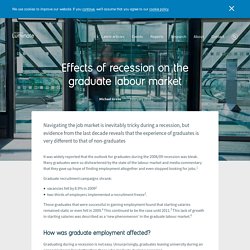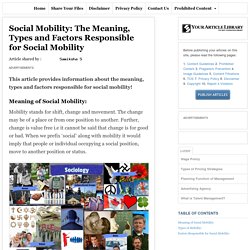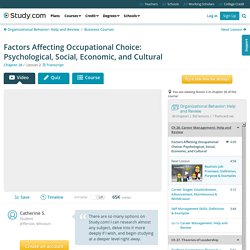

Effects of recession on the graduate labour market. Navigating the job market is inevitably tricky during a recession, but evidence from the last decade reveals that the experience of graduates is very different to that of non-graduates It was widely reported that the outlook for graduates during the 2008/09 recession was bleak.

Many graduates were so disheartened by the state of the labour market and media commentary that they gave up hope of finding employment altogether and even stopped looking for jobs.1 Graduate recruitment campaigns shrank: vacancies fell by 8.9% in 20092 two-thirds of employers implemented a recruitment freeze3. Those graduates that were successful in gaining employment found that starting salaries remained static or even fell in 2009.4 This continued to be the case until 2011.5 This lack of growth in starting salaries was described as a 'new phenomenon' in the graduate labour market.6.
World health organization. Coronavirus disease 2019. The economic consequences of Covid-19. Covid-19 will have major economic consequences for Europe, but how large will the costs prove to be?

Iain Begg outlines the difficult economic choices the outbreak poses for policymakers and analyses the long-term effects the economic downturn is likely to have. Rapidly rising unemployment rates and warnings from many businesses about their viability testify to the looming economic threats from the Covid-19 health crisis. A sharp recession is already underway and could see a double-digit percentage decline in global GDP in the next quarter, with no real sense of when it will end or how a recovery can be achieved.
Unlike the financial and sovereign debt crises a decade ago, this ‘corona’ recession is the result of a deliberate choice by policymakers to put the economy into hibernation. From the perspective of public health, few question the wisdom of this policy, but it will have lasting effects and will require careful handling if long-term economic damage is to be minimised. Full article: A curriculum model for transferable skills development. Graduate wellbeing report full interactive. Graduate Wellbeing - Student Minds. Theories twa. Organizational Behaviour: A Modern Approach - Arun Kumar & N. Meenakshi. Career Education and Career Guidance for the Life Span and for Life Roles.: DISCOVER - the LRC's Online Collections..
Social Mobility: The Meaning, Types and Factors Responsible for Social Mobility. This article provides information about the meaning, types and factors responsible for social mobility!

Meaning of Social Mobility: Mobility stands for shift, change and movement. The change may be of a place or from one position to another. Further, change is value free i.e it cannot be said that change is for good or bad. When we prefix ‘social’ along with mobility it would imply that people or individual occupying a social position, move to another position or status. Image Courtesy : a880c9.medialib.glogster.com/thumbnails/66/66346b6678a4106c4ecc12153690a2fb6e12298bced142d98afd38de9158db4b/sociology-source.jpg In the social ladder this movement may be upward or downward or it may be inter-generational or intra-generational.
On mobility Sorokin was the first sociologist who wrote a book “Social and Cultural Mobility”. In this sense, mobility “provides the individual with more or less of the benefits which his economy and society have to offer.” Types of Mobility: 1. 2. 3. 4. 5. 6. Factors Affecting Occupational Choice: Psychological, Social, Economic, and Cultural - Video & Lesson Transcript. Occupational choice is affected by four factors: psychological, social, economic and cultural.

An individual's job choice is molded by their family, morals, values, intelligence, abilities, finances and many other things. Occupational Choice One night, Police Chief Sam was putting his son to bed. After their nightly book ritual, his son Santino asked how and why he became a police officer. Sam took a sip of water and sat down on his son's bed. Psychological Factors The first factors that can impact an individual's occupational choice are psychological factors. Understanding Careers: The Metaphors of Working Lives - Kerr Inkson. 10 Reasons Why Networking Is Essential For Your Career. Networking is not only about trading information, but also serves as an avenue to create long-term relationships with mutual benefits.

Continue reading to find out why networking should be at the core of your career. The importance of the saying “no man is an Island” has been proved to be the reason why many of us need to make a collective effort in the bid to achieve professional success. For many individuals that have succeeded in their career, the causes have largely been contributed to the strong networking channels they have created over time. But the question of who you network with and their relevance to your career matters more. This way, you don’t have to network with everyone. Here are some reasons why networking should be an essential aspect if you truly want to build your career. An avenue to exchange ideas. The Practice of Networking An Ethical Approach. The importance of networking for your career – and how to do it well. Network for jobs Networking.

You get to advance your career by hanging out with like-minded people, probably involving food. What’s not to like? Actually, for many people, quite a lot. Approaching strangers, making small talk, telling people about yourself – this can all seem a little intimidating at first, but trust us when we say it's worth your while (and it's not as scary as it might sound). Professional networking isn't about walking into a room full of strangers and trying to charm them, simultaneously, into being your best friends.